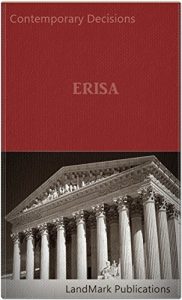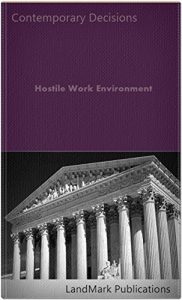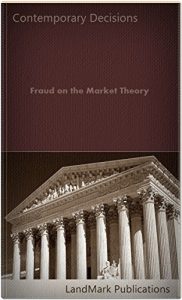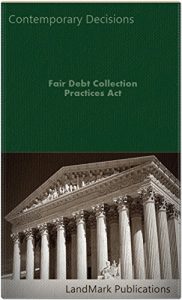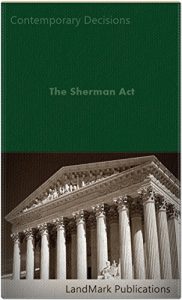THIS CASEBOOK contains a selection of 230 decisions of the U. S. Court of Appeals that analyze, discuss and interpret provisions of the Employee Retirement Income Security Act of 1974. The selection of decisions spans from 2005 to the date of publication.
"Congress enacted ERISA to 'protect . . . the interests of participants in employee benefit plans and their beneficiaries' by setting out substantive regulatory requirements for employee benefit plans and to 'provid[e] for appropriate remedies, sanctions, and ready access to the Federal courts.'" Aetna Health Inc. v. Davila, 542 U.S. 200, 208 (2004) (alteration and ellipses in original) (quoting 29 U.S.C. § 1001(b)). Accordingly, ERISA establishes a regulatory regime that makes plan administrators fiduciaries, see 29 U.S.C. § 1104; imposes liabilities on plan administrators that breach their fiduciary duties, see § 1109; requires plan administrators to disclose specific information and to file reports with the Secretary of Labor, see § 1021(a), (b); mandates that plan administrators retain records for substantial periods of time, see § 1027; and creates an exclusive mechanism to enforce these guarantees, see § 1132. Self-Insurance Institute of America, Inc. v. Snyder, (6th Cir. 2016).
"ERISA regulates pension benefits through statutory accrual and vesting requirements." Spacek v. Mar. Ass'n, 134 F.3d 283, 287 (5th Cir. 1998), abrogated on other grounds by Cent. Laborers' Pension Fund v. Heinz, 541 U.S. 739 (2004). An employer can impose extra-ERISA contractual obligations upon itself, and when it does so, "these extra-ERISA obligations are rendered enforceable by contract law." Id. "Extra-ERISA commitments must be found in the plan documents and must be stated in clear and express language." Id. at 293 (citing Wise v. El Paso Nat. Gas Co., 986 F.2d 929, 937 (5th Cir. 1993)). Hunter v. Berkshire Hathaway, Incorporated, (5th Cir. 2016).
A key component of ERISA's statutory plan is Section 503, which requires that, "[i]n accordance with regulations of the [Department of Labor], every employee benefit plan shall" do two things: First, "provide adequate notice in writing to any participant or beneficiary whose claim for benefits under the plan has been denied, setting forth the specific reasons for such denial, written in a manner calculated to be understood by the participant"; and second, "afford a reasonable opportunity to any participant whose claim for benefits has been denied for a full and fair review by the appropriate named fiduciary of the decision denying the claim." 29 U.S.C. § 1133. [Footnote omitted.] Halo v. Yale Health Plan, Director of Benefits, 819 F. 3d 42 (2nd Cir. 2016).
. . .
"Congress enacted ERISA to 'protect . . . the interests of participants in employee benefit plans and their beneficiaries' by setting out substantive regulatory requirements for employee benefit plans and to 'provid[e] for appropriate remedies, sanctions, and ready access to the Federal courts.'" Aetna Health Inc. v. Davila, 542 U.S. 200, 208 (2004) (alteration and ellipses in original) (quoting 29 U.S.C. § 1001(b)). Accordingly, ERISA establishes a regulatory regime that makes plan administrators fiduciaries, see 29 U.S.C. § 1104; imposes liabilities on plan administrators that breach their fiduciary duties, see § 1109; requires plan administrators to disclose specific information and to file reports with the Secretary of Labor, see § 1021(a), (b); mandates that plan administrators retain records for substantial periods of time, see § 1027; and creates an exclusive mechanism to enforce these guarantees, see § 1132. Self-Insurance Institute of America, Inc. v. Snyder, (6th Cir. 2016).
"ERISA regulates pension benefits through statutory accrual and vesting requirements." Spacek v. Mar. Ass'n, 134 F.3d 283, 287 (5th Cir. 1998), abrogated on other grounds by Cent. Laborers' Pension Fund v. Heinz, 541 U.S. 739 (2004). An employer can impose extra-ERISA contractual obligations upon itself, and when it does so, "these extra-ERISA obligations are rendered enforceable by contract law." Id. "Extra-ERISA commitments must be found in the plan documents and must be stated in clear and express language." Id. at 293 (citing Wise v. El Paso Nat. Gas Co., 986 F.2d 929, 937 (5th Cir. 1993)). Hunter v. Berkshire Hathaway, Incorporated, (5th Cir. 2016).
A key component of ERISA's statutory plan is Section 503, which requires that, "[i]n accordance with regulations of the [Department of Labor], every employee benefit plan shall" do two things: First, "provide adequate notice in writing to any participant or beneficiary whose claim for benefits under the plan has been denied, setting forth the specific reasons for such denial, written in a manner calculated to be understood by the participant"; and second, "afford a reasonable opportunity to any participant whose claim for benefits has been denied for a full and fair review by the appropriate named fiduciary of the decision denying the claim." 29 U.S.C. § 1133. [Footnote omitted.] Halo v. Yale Health Plan, Director of Benefits, 819 F. 3d 42 (2nd Cir. 2016).
. . .
